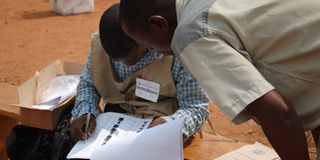We need voter education before polls

In February next year, Ugandans will exercise their right to vote as per Article 59(1) of the Constitution. The political temperature has risen as we gear up towards the General Elections next year. World over, managing electoral processes have proved to be a hard task hence requiring adequate preparations before, during and after the election.
In that regard, there have been ongoing engagements at the national level to check the readiness of the different electoral actors in delivering free, fair and credible elections. That being the case, we have seemingly left out the voters, who for all intents and purposes, are major stakeholders in the electoral process.
The readiness of the voters in the electoral process is equally important as the other actors such as the Electoral Commission (EC) and political parties.
In Uganda, the role of civic education, which entails voter education, is vested in the Uganda Human Rights Commission and the EC. With all these players, the assumption is that by now, voter education programmes should have been rolled out in preparation for the voters ahead of the 2021 General Election.
Studies have shown that there is a correlation between voter education and election outcomes. For instance, in 2002, the United Nations Development Programme coordinated a comprehensive voter education drive in Kenya, which reduced post-election violence perhaps which would have erupted.
Drawing from the Ugandan experience, out of the Citizens’ Coalition for Electoral Democracy in Uganda (CCEDU’s) “Topowa” campaign in 2015 and 2016, the voter turnout soared from 58% in 2011 to 67.6% in 2016. The campaign was hinged on enlisting citizens’ participation in the electoral process. Given CCEDU’s grassroots mobilisation capacity and structure we expect to see more of such similar campaigns ahead of 2021.
Besides reducing on voter apathy, voter education programmes help in awakening the civic conscious of vulnerable groups such as women and youth to actively engage in political activities such as voting.
Needless to say, in absence of voter education, the gullible voters are often exploited by political aspirants in exchange for their votes. Previous election observation reports have indicated that voting patterns especially in rural areas are still influenced by money and other household items such as sugar, soap and salt.
Therefore, in order to reverse such trends, we need rigorous voter education programmes to change the mindsets of the voters so that they vote issues rather than material gains from candidates.
Early voter education can help to minimise number of invalid votes as well as election-related conflicts.




